Aug 10, 2024
Manoj
Balraj
Manoj Balraj is the President and Co-Founder of Experion Technologies, a company specializing in product engineering services. With over 17 years of experience in the tech industry, Manoj has led the company through significant growth and transformation, focusing on delivering innovative digital products. He has a background in working with large global corporations before co-founding Experion. Manoj is known for his entrepreneurial spirit, dedication to excellence, and his role in steering Experion to become a trusted partner for major clients worldwide. Additionally, he is involved in community theater, philanthropy, and mentoring young individuals, reflecting his commitment to both professional and personal growth.
One Line Life Lessons from Manoj
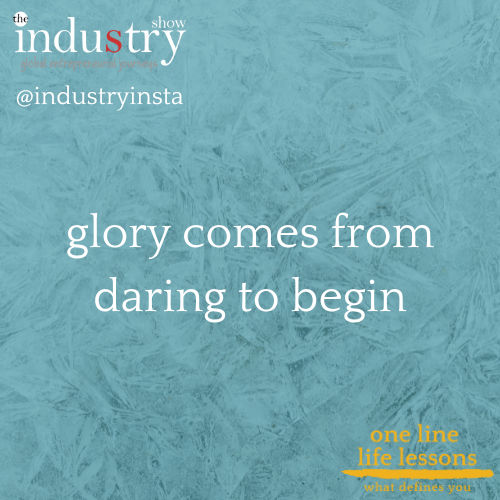
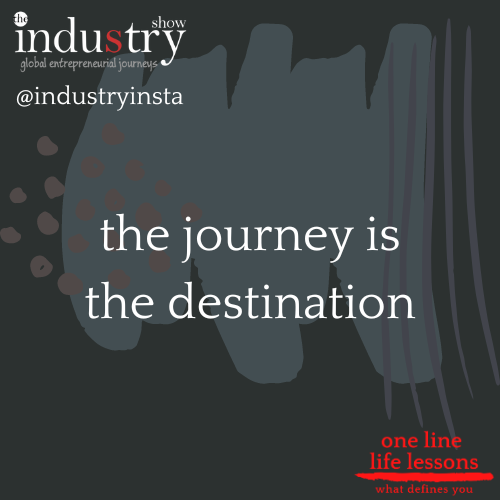
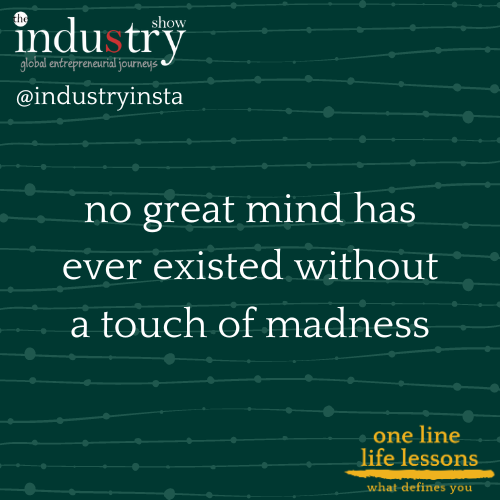
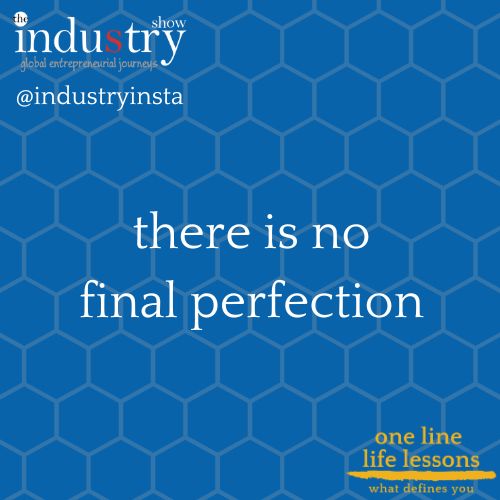
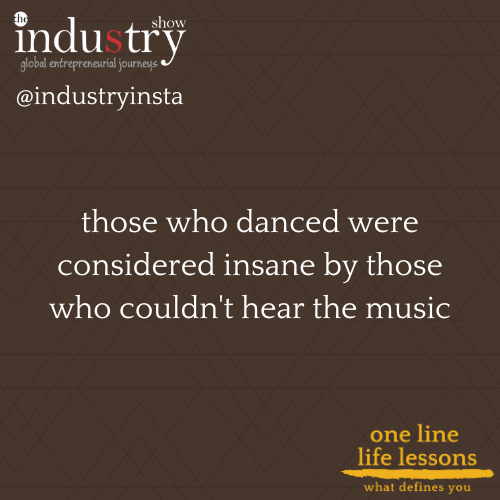
Episode Highlights
- [00:00:00] Nitin Bajaj introduces Manoj Balraj as the guest. Manoj describes himself as a “late bloomer” who found success as an entrepreneur and is now the President and Co-Founder of Experion Technologies
- [00:01:21] Experion Technologies has been operational for 17 years. The company focuses on product engineering as a service. Manoj is responsible for North America, emphasizing a disciplined approach and dedication to product engineering.
- [00:02:33] Manoj and his co-founders had backgrounds in large companies and aimed to capitalize on digital technologies.
- [00:04:13] Difficulty in defining practical AI use cases with clients
- [00:06:19] Development of a groundbreaking healthcare product to assist bedridden patients, set to launch soon.
- [00:08:26] Lessons from Success and Failure
- [00:11:09] Personal Interests and Activities
- [00:14:25] One Line Life Lessons
- [00:16:23] Nitin praises Manoj for his insights and congratulates him on his achievements.
Show Transcript
Transcript - Full Episode
[00:00:00] Nitin Bajaj: Everyone. Welcome to the industry show. I’m your host, Nitin Bajaj. And joining me today is Manoj Balraj. Manoj, welcome on the show.
[00:00:08] Manoj Balraj: Thank you, Nitin.
[00:00:09] Nitin Bajaj: Great to have you here. Let’s start with who is Manoj.
[00:00:13] Manoj Balraj: So Manoj Balraj, if I were to connect him to a phrase, it would be late bloomer. That’s what he is. A late bloomer, an average student who bumbled his way through school and college and then did many things for a living and eventually found a voice as an entrepreneur. And now is the president and co founder of a company called Experion Technologies. We specialize in product engineering. As a service we build products, digital products, and I’m responsible for everything that happens for the company in North America. So that’s me. And that’s my role.
[00:00:49] Nitin Bajaj: Awesome. We’ll go into this a little bit. And the one thing I think you left out maybe conveniently is that you’re also an actor. So we’d love to hear a little bit about that too. But tell us more about Experion. What is the size and scale, the team, especially when it pertains to North America? And what I love to hear more about is the impact you and your team have been able to create.
[00:01:21] Manoj Balraj: Sure. Nitin, yeah. Um, Experion it’s been around 17 years now. We bootstrapped and we decided as five co founders, I’m one of them, that we will stick to one story. And that is how do we get better and better in product engineering as a service and being bootstrapped also allowed us to be very disciplined, very focused. And so we stuck to this one story, product engineering. And it paid off, I think because we saw some of the world’s largest companies and some of the classes going one saying. Experian, you may be a little sharp out there, but we need you. We need you to help us build a product that’s critical for our business. And that’s when we realized the value of what we’re truly doing. That was about five years, six years ago. So it’s been very fulfilling and rewarding that way. I hope I answered your question.
[00:02:15] Nitin Bajaj: Yes, you did. Thank you. What I’m curious to learn is How did you find that niche? So in other words, why do this? Why do product engineering? Why focus on the customers that you’re focusing on? Tell us the why behind it.
[00:02:33] Manoj Balraj: Very good question. So we all were working in large companies. One was in Japan, one was in Dubai, was in the United States, and we all converged and then thought, what are we doing with our lives? Just look at what’s happening. Digital technologies is taking over. There’s so much scope to build products And we thought we were the smart cookies in the room. We got together, we formed a company and we built products and they failed one after the other, but one of them stuck on. The second one was a flop. But we learned a lot of lessons and we thought there’s so much scope to build products, digital products. And bring about changes in small to midsize companies. That’s what we aspired for in the beginning, and we saw the results and we thought, let’s push ourselves even harder. That story kept getting better as we went forward. And I think today it’s it’s a position we all are proud of and happy about that we came together, stuck together. And most importantly, we decided we will stay disciplined and that discipline comes when you have less money. And when you had less money, we had no option, but focus on that journey that we started with.
[00:03:41] Nitin Bajaj: That’s amazing. And it’s. It’s really interesting how a limit, whether it’s, any kind of resource, whether it’s time, whether it’s money really brings out the best in you. And when you have a lot of, you don’t care, you take things for granted. So I’ve always found that to be. Very interesting. Now, as you’re growing and scaling and connecting with your customers and growing with them, I would love to know what is the one big challenge you’re facing?
[00:04:13] Manoj Balraj: So we build digital products, right? So what’s happening in the last few years is there’s a lot of CEOs asking their teams, how do we bolt on AI into our business? It’s a nice catchphrase. It comes with a lot of hype and whatnot. And We asked some difficult questions to customers asking what exactly is your use case that you want to make production ready using AI? If you can clearly define to us, we’ll be able to help. If not, we need to do an assignment where we sit together, a business consulting engagement. For example, a very large healthcare company said they would like to automate their call center operations. And they are in the organ transplant business. So it’s a very sensitive area. And bringing AI there, how do you do it? But fortunately, we had a leader there who understood precisely how do I make use of AI without upsetting what’s going on there and improve the call center operations of that health care company. So he allowed us to do a business consulting engagement. That doesn’t happen often, but wish we had those kind of engagements where the customer knew exactly what he wanted, but that’s okay. But I think it’s changing in the last 12 months. I would say I think it’s going to get better. This challenge will go away because more and more awareness, more and more clarity about what I need manufacturing company saying I have inefficiency in my SNOP. I would love to change the way I do business forecasting. My inventory levels need to be controlled better. I have a thought about implementing an AI solution. Would you guys be able to help us? Of course. Yes. Now we are talking. Now we have a reason. Now we have a story to to chase and do something useful there. So yeah, it goes on and on, but that’s the current challenge that I see. Things change with each period, but this is the challenge that stays on top of my mind about AI.
[00:06:13] Nitin Bajaj: Now on the flip side of challenges come opportunities. What’s the one that you’re most excited about?
[00:06:19] Manoj Balraj: It’s not one. There’s actually several because. These companies in various, in automotive, in healthcare and travel if I take that healthcare one right now, as we speak this week there is a healthcare company, another one, which is launching a product with our help. It’ll be the first one in that industry. It’s I’ll crunch it down to a few words so that I don’t go on and on. Yeah. The joy in that in that product is that it is going to help patients, especially patients who are ill and bedridden, get the precise nursing support they should be getting at the location they are in. And this product is the first one that’s going to connect. A lot of those practitioners in that space with patients and it is exciting. We really want to see that happen. The kick you get out of it if that product goes live is unimaginable because it’s going to help thousands and thousands of families across North America. And there’s us, there’s a little shop behind the scene building that product and the customer says I invest my trust in you. And I want your product management skills and your data and design and engineering and technology skills to come together, because this is my dream. This is my vision. Help me. And we are, and hopefully this week, the first set of results come up.
[00:07:39] Nitin Bajaj: That is so cool. And as you said, the joy and the satisfaction that you get from seeing those results, that instant it’s not instant, but that gratification of this is our work, we made this possible. Is so rewarding
[00:07:55] Manoj Balraj: every single time. Yes. Yes.
[00:07:58] Nitin Bajaj: Beautiful. Now, as we look forward, I would love to pause and reflect and take you back in time with us and ask you to share two moments, one where things did not work out as you had planned, there was failure, maybe some lessons and another one where things exceeded your expectations and became a success beyond what you had imagined.
[00:08:26] Manoj Balraj: Okay. The failure side, it’s easy because I’ve had some really, it’s not being pleasant in the world of business. When you go out and meet people, shake hands, you’re expecting everything to turn out to be nice, but no, reality says there’s some people who have another agenda and comes the difficult part of saying, no, I don’t need this business. And when that as a failure at that time, I failed to bring it all together. But when I look back now, I feel so relieved. I did not go into that business transaction because. We would have compromised on our values and ethics and whatnot. This is not textbook stuff. This is reality. You have to really make some tough decisions. Yes, we are bootstrapped. Yes, we are. We need the growth. We need the customer. But there are certain individuals who can spoil the party because they have certain agendas and you need to back out from it and say, Thank you. I’ll be fine without you. So that’s one part. The success stories there’s many. I think when a customer writes a public testimonial about you and says, your team, Experianites, came together and built this for me, and we’ve seen 57 of our customers step forward and rate us on a scale of five, they rated us 4. 9 out of five. It’s not because we are that perfect. As I always say, it’s because I think the chemistry worked, they respected us, they trusted us. And there’s an analyst firm that interviewed each of these customers on a one to one and we were astounded by the results each time because 4. 9 out of five is unreal and software can never be that perfect, but it wasn’t about the software. It was about the people. On both sides coming together and on a mission to build something that was going to be useful for that business or a community or whatever. So that is the greatest satisfaction, greatest success story that I think I can think of right now.
[00:10:18] Nitin Bajaj: That’s beautiful. And as you said, the ones that step up maybe represent 10 others who did not, because as we know we don’t publicly acknowledge and in these environments, Maybe a lot of the customers don’t even want others to know that there was another team behind this. So that’s amazing. And that’s great of you and your co founders to have that kind of leadership that enabled this team to show these results. So that’s really amazing. Now, as we talk about all these things and talk about your travels, your interactions with a lot of these customers, both in North America and around the world. I am very curious to know what do you do for fun? How do you take off from all the stress the discussions and everything that go on?
[00:11:09] Manoj Balraj: Yeah. So I think this is a chance to comment on the line you said in the beginning. Yes. Take great relief and joy in being part of community theater. I’ve worked with actors. Aspiring amateur actors like me young people, old people we hit a vibe that is unmatched in the corporate world, unmatched in entrepreneurship. These are men and women who are so devoted to the craft of acting, performance art that gives me so much relief. There’s 52 weekends in a year. You chop them into 52 Saturdays, Saturday mornings, 52 Sunday mornings, 52 Sunday evenings, whatever. And then you say, I’m going to spend 30 Saturday mornings to act, to perform, to learn. And acting means you learn philosophy, art, spirituality, and all of that. And that keeps me going. It’s a lot of energy for me. I derive a lot of energy from it. I’ve met wonderful people across the United States, India, Japan, and this, I can keep going. The other part is philanthropy because I grew up in a home where both my parents were very clear. You give and you give. And I’ve seen them do some phenomenal things and I just happened to emulate them. So I, me and my kids and my spouse, we are part of about 11 nonprofit entities where we do stuff related to art and as a result of which we raise funds and they’re spread across multiple cities, but we volunteer. We don’t hold any fancy positions in those, but we are volunteers and we stay close to the ground saying our job is to raise funds or provide funds or do whatever. So that keeps me going. The other part is mentoring. I do mentoring for high schoolers and middle schoolers. I’ve been doing this for 10 years, about 400 odd kids I’ve worked with. And I don’t go lecturing them about what you should be doing, but I bring in smart people and these kids together in a classroom, along with my friend friends who are volunteers as well. And then we talk about sales, marketing, production, planning, and whatnot. The kids can walk out of these classrooms anytime. It’s there’s no obligation, but these kids stick and then at the end of the program They have made a plan to build a product or a service and actually pitch to investors and so on So mentoring philanthropy and all this performing arts keeps me so active and busy and lively during weekends And that gives me the energy monday. I’m back. I’m back. I’m back for more action.
[00:13:26] Nitin Bajaj: That is phenomenal on so many different levels. One, giving back to the community to nurturing the next generation. And three, of course, honing a craft that I’m sure the. The arts also comes into the business as you understand your emotions, understand other people’s emotions. I’m sure that also helps you connect and resonate with your would be customers.
[00:13:52] Manoj Balraj: Yes, absolutely. The ability to rely on your instincts, it improves the more. You invest in the craft of theater, acting, whatnot, instincts. It’s so powerful. And I believe that every kid who goes through theater or some form of performing arts, their instincts improve over time. Anyway, I can keep going.
[00:14:13] Nitin Bajaj: No, that’s amazing. I resonate with that. Now that brings us to my favorite part of the show. We call it the one line life lessons. We would love Manoj for you to share your life lessons with us.
[00:14:25] Manoj Balraj: The first thing that always the one line is glory comes from daring to begin. It comes from there. So that’s one. Then our Scoutmaster, Troop 219 in Plano, Texas, he always says this the journey is the destination. And it hit me at many levels. I don’t need to feel bogged down now. This is the destination. This is my journey. It’s a great reminder. And then some great mind said, There is, there has never been a great mind, Who has not been mad or to some extent to that. So if you are crazy and people tell you’re crazy, it’s okay. You’re working on something better than most others are. That’s okay. And just that you need to become a great man. And I hope I’ll be one day. The another one that I can think of that comes from mind is there is no final perfection. There’s only various degrees of readiness and the Japs call it in a very nice Saxon way. Wabi Sabi. There is imperfection all around you. Live with it. It’s okay. You’re not perfect. I’m not perfect. This laptop isn’t perfect. Nothing is perfect. It’s okay. And just be happy with that. It took me some time to get to that level, but once you hit that flow, it is nothing but joy. So these are some that come to my mind ad hoc. There’s also another one that, that comes to my mind, but I’m not sure if I’d be able to say it the way it should be said. Those who are seen dancing are thought to be insane by those who don’t hear the music. I don’t know who said that, but I felt people are looking at me, this guy is insane. And I’m thinking it’s okay, I’m fine. And then I see this quote and I take relief in it. You have to be crazy to achieve some things. And there’s a, there’s millions of, I think, crazy people out there. I wear their crazy and then pushing themselves harder to achieve something that others are not thinking about. I can keep going, but I will.
[00:16:23] Nitin Bajaj: So beautifully said. And I think it’s the crazy ones that define and push the edge that helps us realize, Oh, there is a new world that has not been explored before. So we need the crazies. We need you. It’s been an absolute pleasure. Thank you for sharing your journey and story and more importantly, your life lessons with us. We really appreciate it. Congratulations on the successes so far. And I know you have a long way to go. And as you said, the journey is the destination. So keep enjoying it.
[00:16:58] Manoj Balraj: I will, sir. I will. Thank you so much. You’ve been a graceful host, very patient, and I liked your questions. It made me think you made my day. Thank you.



